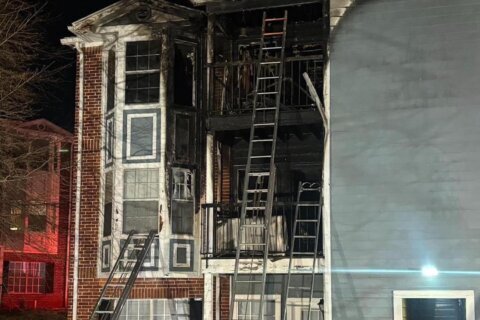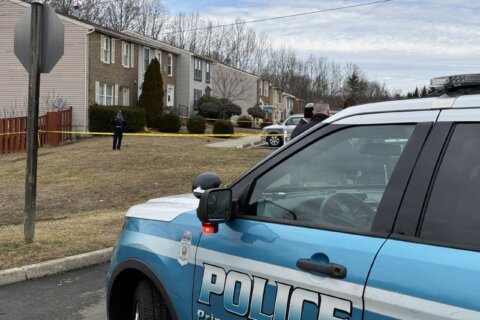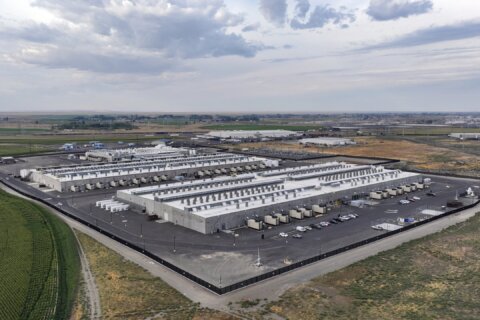This article was republished with permission from WTOP’s news partner InsideNoVa.com. Sign up for InsideNoVa.com’s free email subscription today.
This article was written by WTOP’s news partner InsideNoVa.com and republished with permission. Sign up for InsideNoVa.com’s free email subscription today.
The prevailing theme at a hearing on Prince William County’s proposed budget: Don’t raise taxes.
During its meeting Tuesday, the Board of Supervisors held its first public hearing on the proposed $1.48 billion budget for fiscal 2023, which starts July 1.
The proposal is an increase of $127 million, or 9.4%, over the budget for the current fiscal year.
The spending plan also comes with a $1.15 billion six-year Capital Improvement Program, with $334.8 million earmarked for the upcoming budget year.
The county is proposing a decrease in the residential real estate tax rate from $1.115 per $100 of assessed value to $1.05. While the rate is dropping, however, rising property values will result in an effective tax increase. The average residential tax bill would increase $233, or 4.9%, on a home valued at $466,739.
The county also plans to adopt a new 4% tax on prepared meals, such as those served at restaurants, which would generate $24.5 million. Of that, $14 million would go to the school division and $10.5 million to the county’s general fund.
Nearly half of the 41 speakers at Tuesday’s public hearing said increasing property tax bills or implementing a new levy on meals was irresponsible as gas prices soar and inflation rises.
“Feel free to cut anything you think will benefit me,” said Kevin Allen of Brentsville. “I want less spending. I want less taxes.”
Supervisors reduced the real estate tax rate in the current fiscal year from $1.125 per $100 of assessed value to $1.115, but homeowners still saw an average increase of about $264.
Because the board advertised a rate of $1.05, the adopted rate can be no higher, but state code allows the board to approve a lower levy without holding a subsequent public hearing.
Homeowners would also see a small increase in the fire levy, which supports funding for local fire and rescue services. The rate would increase from 0.075 cents per $100 of assessed value to 0.08 cents, resulting in an average increase of $15.
Prior to the public hearing, more than 100 firefighters and their supporters rallied outside of the county building to call for a bigger cost-of-living pay increase and to restore previously planned pay raises.
The spending plan includes a 1% across-the-board pay increase for employees and eligibility for a 3% performance-based pay raise.
Mitch Nason, president of the Prince William County Professional Firefighters Association, said only guaranteeing a 1% raise was “unacceptable.” Employees deserve a “realistic” cost-of-living raise, Nason said.
“If you have a wage that does not keep up with inflation, it is a pay cut.”
Resident Desi Arnaiz told the board that the increases will hit those who have less disposable income.
“You’ve got to consider all of your constituents who are on fixed incomes,” he said.
Several speakers also urged the board to allocate funding for an office of early childhood.
“If we want to truly focus on supporting the economic growth and economy in our county, we need to invest in supporting early childhood,” said Mary Braxton.
Other speakers called for increased funding for a planned crisis receiving center, supplemental allocations for probation and parole officers, money for various nonprofits and dedicated funding to combat climate change.
The business tangible computer and peripheral tax — which primarily applies to the burgeoning data center industry — would increase from $1.50 per $100 of assessed value to $1.65. The increase would boost revenues by about $11.6 million. Some speakers called for a greater increase to ease the burden on homeowners.
No other taxes are estimated to increase. The county is expecting to lose about $11 million in revenue if Virginia eliminates the sales tax on groceries, a key campaign promise of Gov. Glenn Youngkin (R) that is working its way through the General Assembly.
The board is expected to hold a hearing on the advertised tax rates on April 12. The budget is scheduled for adoption by April 26.







